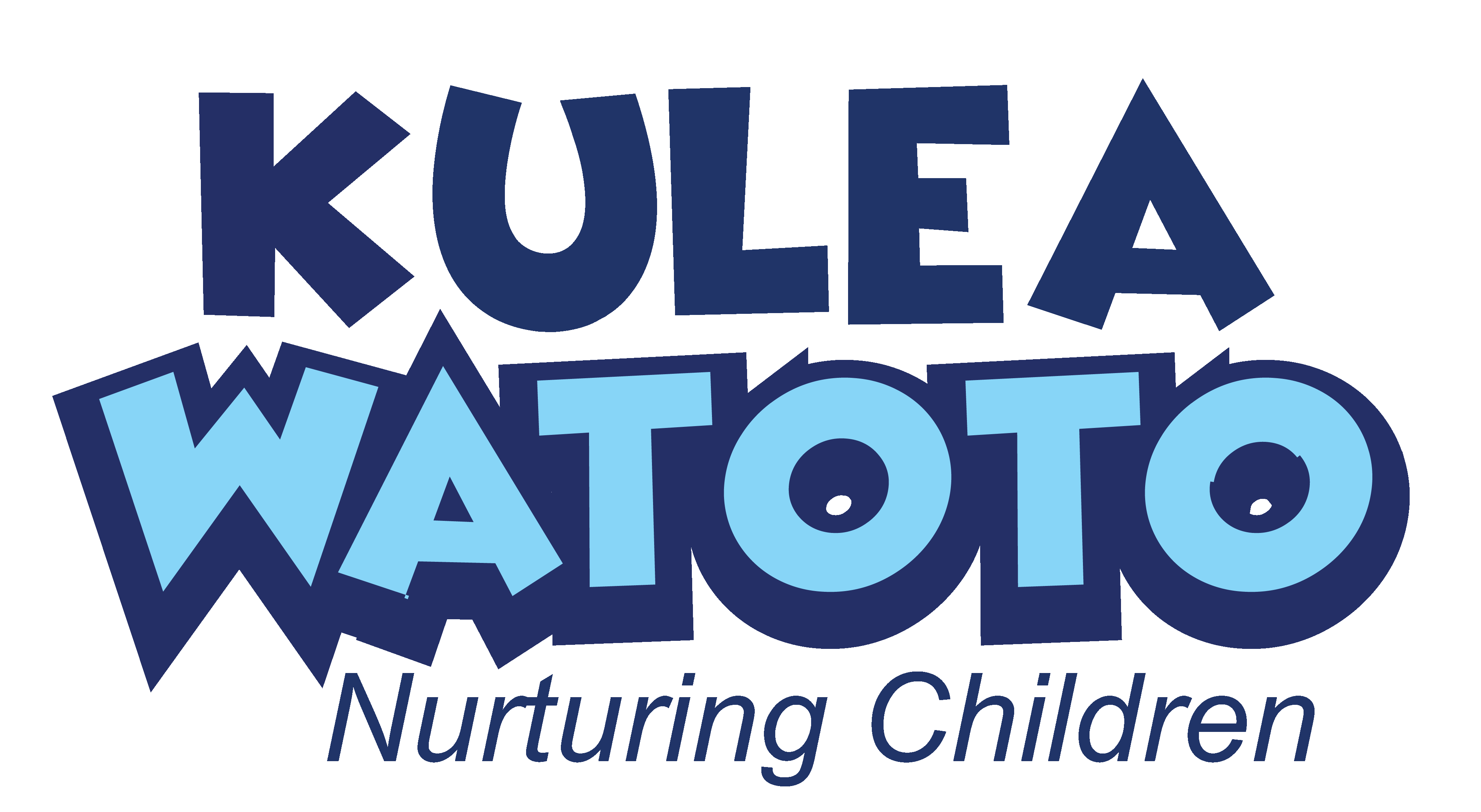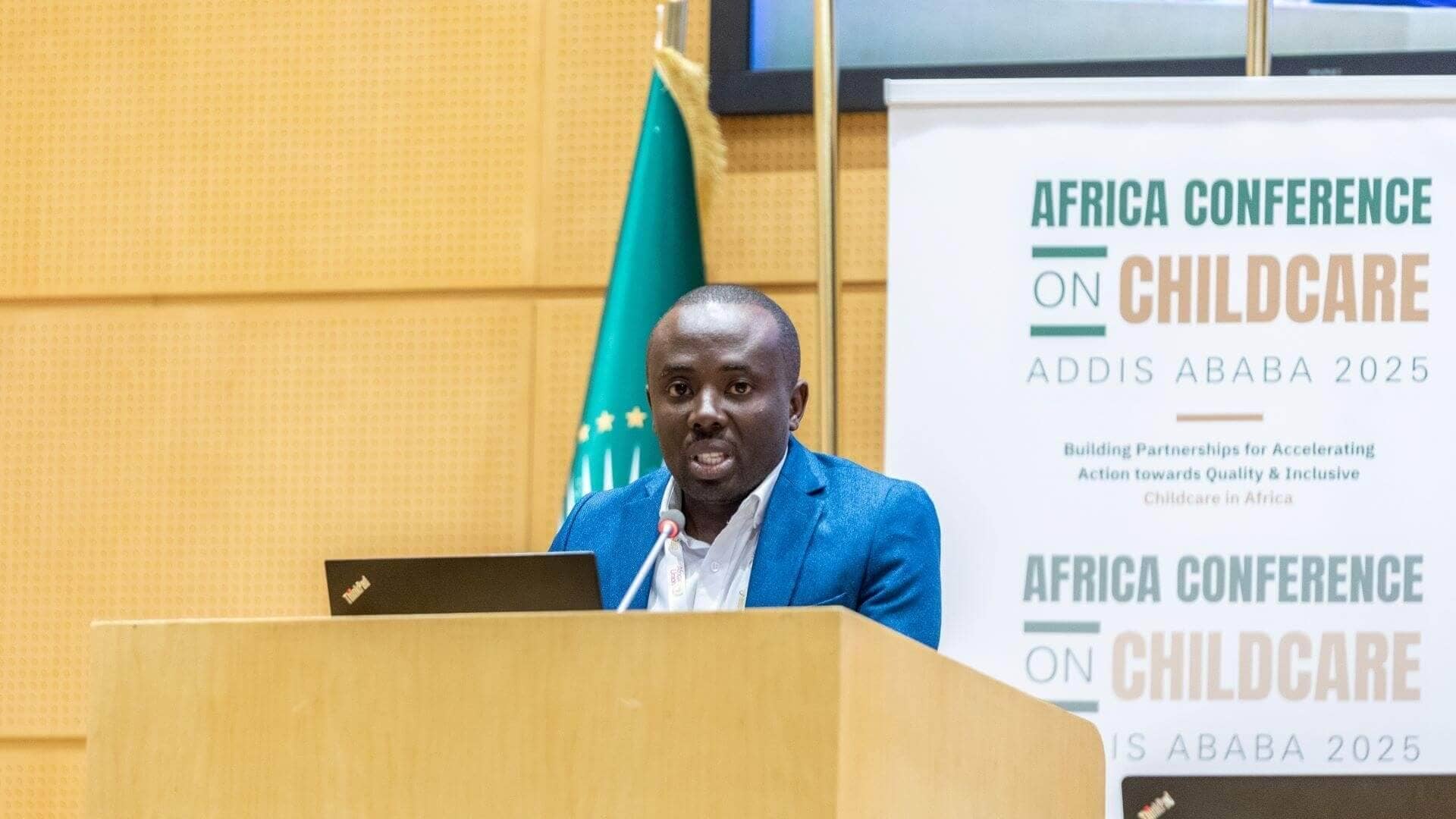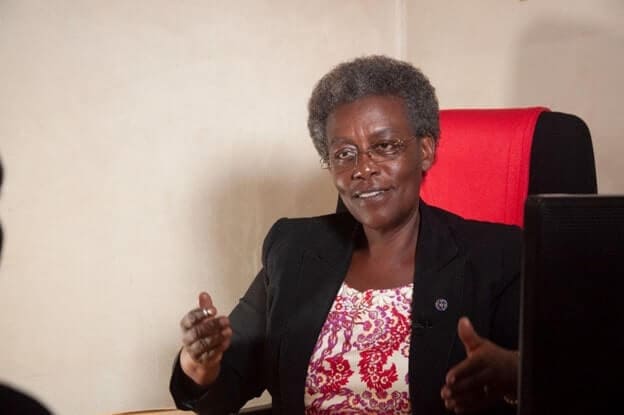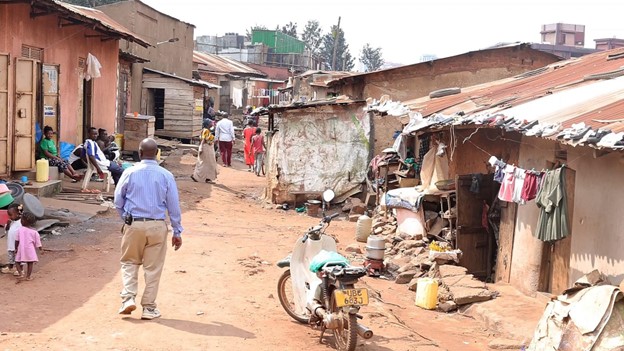Kulea Watoto reshaping Early Childhood Education at Shiperoy Nursery and Primary School
Kulea Watoto reshaping Early Childhood Education at Shiperoy Nursery and Primary School
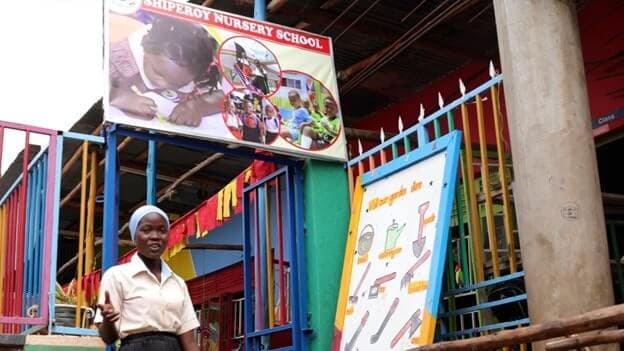
Jauharah Mwesigwa, a head caregiver at Shiperoy Nursery and Primary School in Lukuli, Makindye division, during an interview.
It’s just another day in an always vibrant Top Class classroom with laughter echoing as children count bottle tops, flip through cardboard books, and play with locally-made sweet potatoes and watermelons, turning everyday objects into their first school supplies. These playful moments are laying the foundation for lifelong learning, showing how imagination and care can thrive even in low-resource settings.
In Makindye Division, Kampala, Shiperoy Nursery and Primary School has adopted these innovative methods into their curriculum. At the helm of this effort is Jauharah Mwesigwa, the Head Caregiver, who leads a practical and resourceful initiative to transform the way children learn and interact with their environment.
Mwesigwa’s work is supported by the Kulea Watoto project which focuses on helping refugee and local communities in Uganda improve early childhood development by training caregivers, teachers, and families on how to support young children’s learning and well-being. The project also helps parents gain skills to improve their livelihoods, creating a stronger foundation for children’s growth. By connecting families, schools, and communities, Kulea Watoto fosters safe, nurturing spaces where children can learn, play, and thrive.
Mwesigwa describes her experience with the training she received from the Kulea Watoto project as eye-opening. “When the training began, I realized teaching young children involves much more than I had imagined,” she reflects. “It’s not just about following routines but creating moments where children can explore, discover, and grow.”
The project has equipped Mwesigwa and her colleagues with skills to improve classroom methods, foster positive teacher-learner interactions, and integrate play-based learning. Caregivers have shifted from rigid, lecture-style teaching to dynamic, child-centered practices where learning happens through play, storytelling, music, and hands-on activities.
One exciting part of the training focused on creating instructional materials from locally available resources. Mwesigwa shares,
“We use cardboard boxes to make books, bottle tops for counting, and natural materials like leaves and sticks to help children connect with their environment.”
This hands-on approach makes learning tangible and enjoyable, helping children develop language, math, and social skills while connecting to their local context.
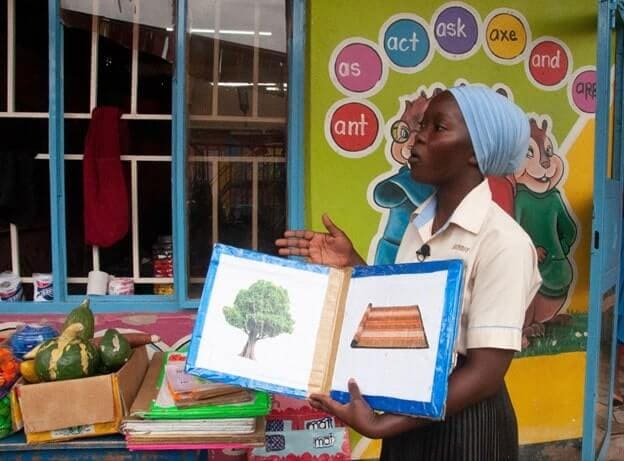
Jauharah Mwesigwa, a lead caregiver at Shiperoy Nursery and Primary School in Lukuli, Makindye division, explains the transformative learning framework during an interview.
Mwesigwa’s growth also extended to leadership through Center Management Committee (CMC) training, which enhanced her understanding of governance, budgeting, and stakeholder engagement in Early Childhood Development centers. This has empowered her to contribute more effectively to school leadership and collaboration with parents and the community.
“Good governance is vital,” she explains. “It ensures we have resources, parents are involved, and the school runs smoothly to support every child’s learning.”
As a Teacher Mentor, a role she took on after the ‘Teachers as Leaders for Learning training’, Mwesigwa now supports fellow educators with lesson planning, material development, and classroom organization. She leads peer learning sessions that foster sharing of best practices and teamwork.
“Mentorship has been rewarding,” she says. “Supporting teachers to grow has created a stronger, more confident team.”
Shiperoy Nursery and Primary School serves diverse children, including many from refugee families from neighboring countries like Congo and South Sudan. Language and cultural differences initially posed challenges, but the caregivers’ training prepared them to use pictures, gestures, songs, and patience to bridge gaps.
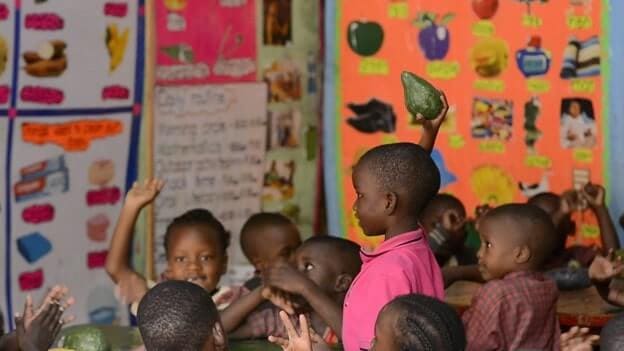
A learner at Shiperoy Nursery and Primary School displays an Ovacado fruit during a class session created out of local materials. Teachers have been skilled in the creation of local play materials by the Kulea Watoto Project.
“Love and care are the foundation,” Mwesigwa emphasizes. “When children feel safe and accepted, they are more eager to learn and participate.”
Parents have noticed positive changes. Community meetings and home visits raised awareness about early education’s importance, increasing enrollment and parental involvement. Families once hesitant now actively support the center, recognizing its role in preparing children for lifelong learning.
The school also addresses economic barriers refugee families face with flexible fees and partnerships, ensuring no child is denied quality education due to hardship.
A cultural shift toward valuing play in learning stands out. Play is now seen as key to developing cognitive, social, and emotional skills. Children build math concepts with blocks, practice language in storytelling groups, and learn cooperation and empathy through games.
Mwesigwa highlights, “When children pretend and play, they aren’t just having fun; they are practicing leadership, problem-solving, and communication skills that will serve them for life.”
Mwesigwa is also especially grateful for the project’s support to parents, enabling them to keep their children in school. One story that stands out for her is of a girl who was often late on school fees and frequently missed classes.
“That child’s life completely changed when her mother joined the Kulea Watoto program,” Mwesigwa shares. “After receiving livelihood training and a cash grant, the mother now pays school fees on time and even packs her daughter snacks for school. The impact of this support is clearly visible in the child’s well-being and consistency at school.
Amidst the joyful learning , Shiperoy Nursery and Primary School’s progress shows how investing in caregiver training has transformed early childhood education in Uganda. It proves that with support, teachers become leaders, classrooms become places of happiness and discovery, and children build strong foundations for the future.
“I no longer see myself just as a caregiver,” Mwesigwa says,“I shape futures. Every child who walks through our doors deserves that chance.”
